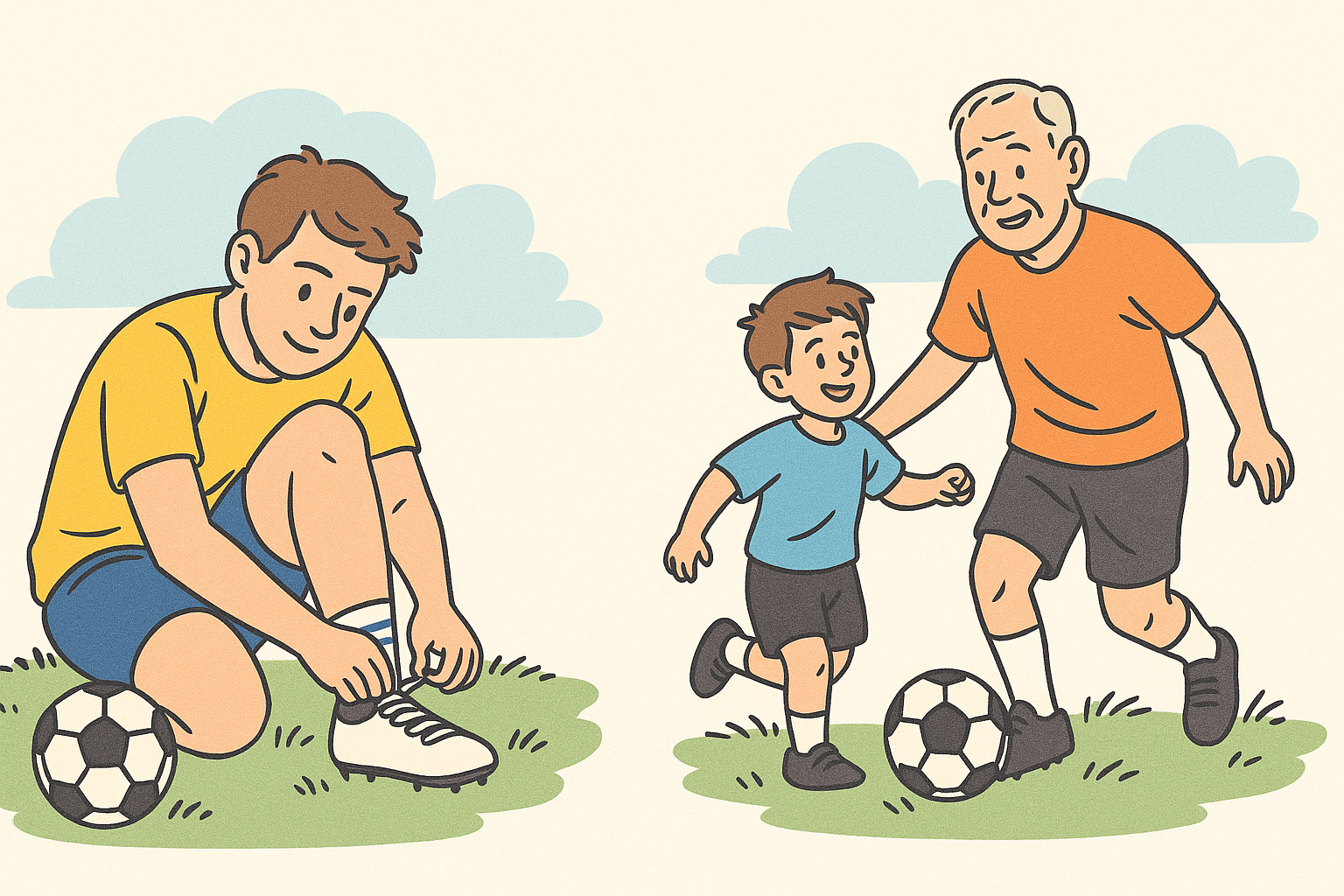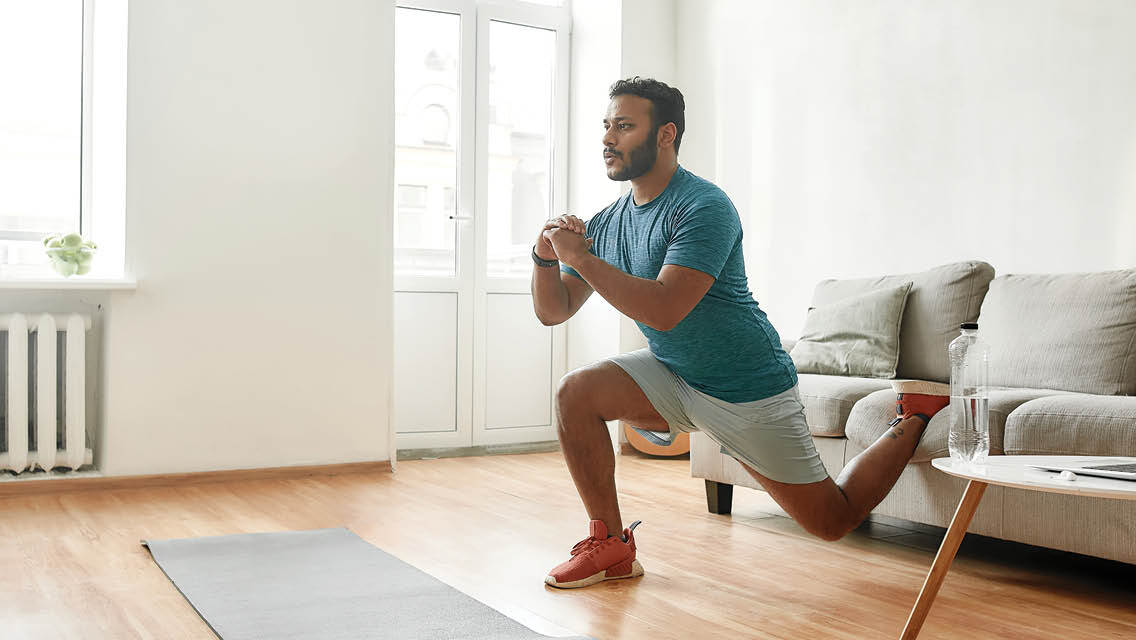From Chaos to Calm: Exercise to improve your mental well-being.

Exercise to improve mental well-being.
These days, mental health has become one of the most popular topics—and for good reason. We live in a world that moves fast, constantly pushing us to keep up. Amid the rush of daily responsibilities, endless notifications, and the pressure to perform, it's natural to pause and ask: How can I take care of my mental well-being? Can something as simple as exercise will really make any difference?
We live in a fast-paced world where pressure and expectations are constant, making stress, anxiety, and depression increasingly common.
This rise in mental health challenges is linked to several factors:
- Social media promotes comparison and unrealistic standards.
- Financial issues and job insecurity create daily stress.
- Social isolation is growing, despite being more digitally connected.
- Global issues like climate change, political instability, and pandemics add to a sense of uncertainty and fear.

![]() Exercise does not benefit us only to maintain a healthy body and be in shape but also improves our mental well-being significantly but why?
Exercise does not benefit us only to maintain a healthy body and be in shape but also improves our mental well-being significantly but why?
- Powerful chemical reaction in your brain: Exercise boosts the production of serotonin and dopamine, the neurotransmitters that regulate mood, happiness, and motivation. At the same time, it lowers cortisol, the hormone linked to stress and anxiety. This natural shift in brain chemistry not only helps you feel more relaxed and energized but also builds long-term resilience against depression and emotional burnout.
- Sleep better: If you're struggling with sleep, regular exercise can make a big difference. Physical activity helps relax your muscles, leading to deeper, more restful sleep — which in turn boosts your mood and energy levels throughout the day.
- Social aspect: When you exercise with other people gives you a better sense of community and will make you feel supported. Being around others while staying active can also have a powerful impact on your mental well-being, boosting mood and motivation.Some ideas could be: Join a sports league, go to a pilates class or just simply enrolling in a gym.
- Calms your mind: When you're overwhelmed by negative thoughts, exercise can help you disconnect and gain a fresh perspective and change to new ideas. It gives your mind a break and allows space for more positive or balanced thinking.
- Better self-esteem: Being active is good for your mind, body, and soul. When you do it regularly, it can help you feel more confident and strong. You may feel better about how you look, and reaching small goals can give you a sense of pride and success.


What type of exercise should I do?
There’s no right or wrong exercise when it comes to take care of your mental well-being. What matters most is choosing something you enjoy and feel comfortable doing. Whether it's walking, running, swimming, dancing, or boxing what’s important is that you start moving. When you enjoy the activity, you're more likely to stick with it and make it part of your routine. The key here is to find whatever you you feel comfortable with. You don’t need to follow a strict plan or do what others are doing—just begin with something that fits your lifestyle and feels good to you.
Below are some examples of different exercise types and how each one can have a positive impact on your mental and physical well-being.
- Walking: Mentally, walking triggers the release of endorphins — chemicals in your brain that naturally elevate your mood and reduce feelings of stress and anxiety. Even a short walk outdoors can give you a break from daily pressures, clear your mind, and provide a fresh perspective. Over time, daily walking can lead to better sleep, sharper focus, increased energy levels, and a stronger sense of well-being. It's a simple, accessible form of exercise that not only keeps your body active but also nurtures your mind and emotional health.
- Yoga: This exercise encourages mindfulness, it will help you to stay present and engaged in the moment,which can lead to greater patience and a more positive outlook on life. When you are practising this exercise, you're guided to focus on the here and now, paying attention to the present and letting go of stress and worries. This mental reset is one of the main reasons yoga supports mental well-being.
- Strength training: This type of exercise doesn’t just improve your physical strength—it also strengthens your mind and helps with al the noisy chaos in your head. As you push through challenging workouts, you build discipline, focus, and mental resilience. Over time, this helps you handle stress better, boosts your confidence, and gives you a sense of control. Reaching your strength goals, even small ones, can lift your mood and improve your overall mental well-being.
- Swimming: Getting into the water can help to ease stress, boost your mood, and support your mental well-being.This physical activity has a way of calming your mind, boosting your mood, and helping you feel more like yourself. Whether it’s the chill feeling of floating in the water or the energy you get from moving around, it’s an easy and refreshing way to look after your mental well-being.


- Journaling:This a great way to organise your thoughts and work through your emotions and feelings. Journaling gives you the freedom to express your worries, fears, and anything else that is bothering or stressing you. By putting your experiences, beliefs, and feelings into words this exercise helps you understand yourself better, process what you're going through, and grow from it. All you need is a pen, paper and a comfortable place where you can start writing.
- Meditation: When you meditate, you may clear away the information overload that builds up every day and contributes to your stress.The purpose of this practice isn’t to suppress stress or eliminate negative thoughts, but to become aware of them. If you want to start meditating you can simply do it so by closing your eyes and then breath in and out.Find a quiet and comfortable place to sit where no one can disturb you and allow yourself at least 5 minutes.
- Grounding in the grass—also known as "earthing'': This practice involves physically connecting with the earth by walking barefoot on natural surfaces like grass, soil, or sand. It has calming effects and potential benefits for mental and physical well-being.

